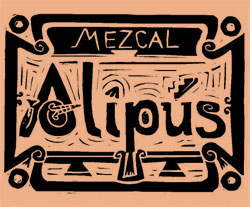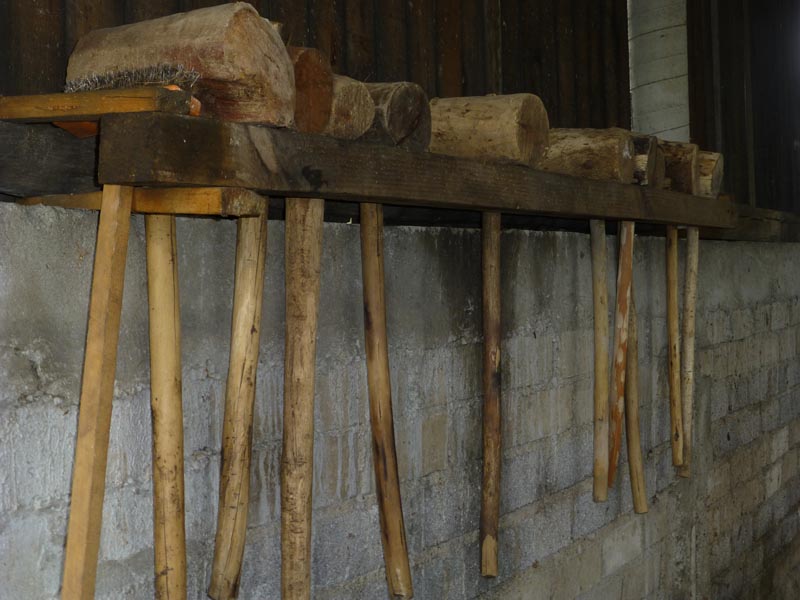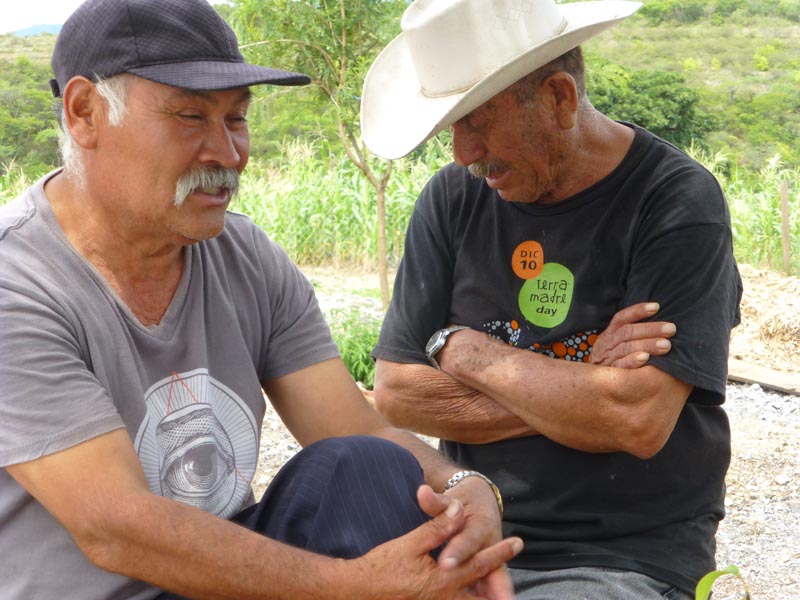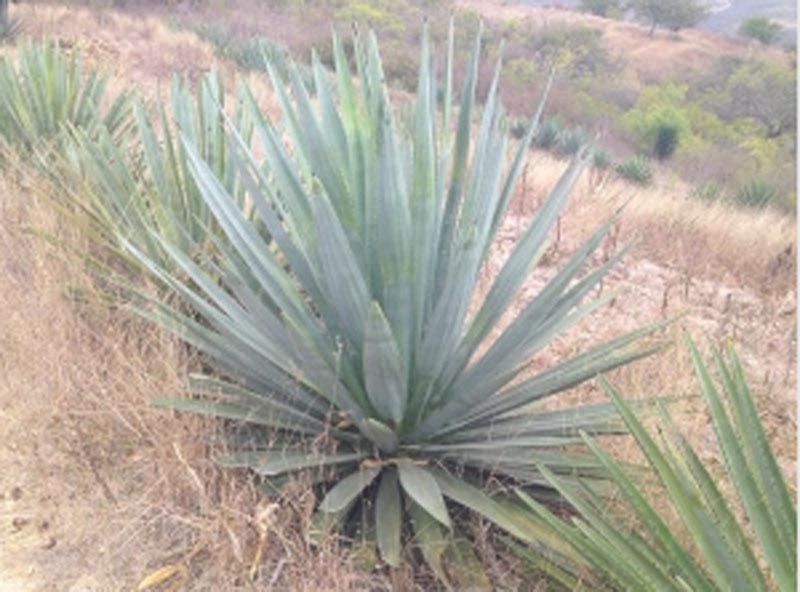SPECIAL EDITIONS
SPECIAL EDITION NO. 1 (2015)
Distilled in September 2013 by Alberto Ortiz (“Don Beto”) from semi-wild madrecuishe (agave karwinskii var.) harvested from a south-facing hillside of rocky calciferous soil at 5400 feet elevation, wood-roasted in a stone horno, mallet-crushed, fermented with wild yeasts, double-distilled on a 200-liter copper potstill.
Don Beto keeps his distillery meticulously clean, which is reflected in his mezcals. He crushes with wood mallets, instead of a mill, because he doesn’t want horses in the distillery. It takes 3 men fourteen hours to crush enough roasted agave to ll one fermentation tank. Yeasts like hand-crushed agaves: more complete, more complex fermentation.
Madrecuishe grows on a stalk, off the ground: less reflected heat, more heat from ambient air: flavors are less baked. The south slope means more sun, more flavor, more fruitiness. The high acidity of madrecuishe yields cleaner flavors, more definition and structure, in the mezcal. This batch rested in a tank for 18 months following distillation: its fluidity is rich and appealing.
Hector Vasquez of Los Danzantes thinks that the difference between 1. metabolization of carbohydrates by photosynthesis in the long madrecuishe stem and 2. metabolization in the piña of agaves with rounded and shorter piñas will create a distinctive flavor profile. The short rounded piñas tend not to produce the fresh herbal flavors that are characteristic of agaves with tall stems, e.g. karwinskii or madrecuishe. Hector believes that Madrecuishe is the only long-stem with a good balance of flavors, especially the Madrecuishe of Miahuatlan.
SPECIAL EDITION NO. 3 (2017)
Distilled in 2014 by Rodolfo Juan Juarez in San Juan del Rio from wild tobala-(agave potatorum) collected in nearby upland mountain soils containing limestone. The agaves were wood-roasted in stone horno, crushed in a stone mill, fermented with wild yeasts, and double-distilled in 200-liter copper pot stills. The mezcal was then rested in tank for over 3 years and bottled in June, 2017. Elegance, harmony, controlled minerality. 48.5% abv
SPECIAL EDITION NO. 4 (January, 2018)
A mezcal distilled by Don Valente Angel from agave espadín and wild bicuishe (agave karwinskii) harvested from the environs of Santa Maria la Pila at some 5400 feet near San Andres Miahuatlan, southeast of Oaxaca City; the agaves were wood-roasted in a stone horno, shredder-crushed (Don Valente has removed many of the shredder teeth to avoid the instrument’s drawbacks), fermented with wild yeasts, and double-distilled on 200-liter copper pot stills. Bottled in April, 2017, the mezcal was placed in a mound of goat manure and left for six months. The bottles were cleaned and transported to Destilería Los Danzantes in Santiago Matatlan in November, 2017. After COLA approval of the label design, the bottles were labeled and shipped to California in January, 2018. See the product video [link] for more details. 120 bottles only. 47.4% abv.
SPECIAL EDITION NO. 5 (2019)
wild cenizo (agave durangensis) harvested in La Constancia Nombre de Dios, Durango, and distilled by Don Rubén Solis Lozano. Cenizo is tiny and sparsely scattered in rocky soil at high altitude. The agaves were wood-roasted in a stone horno, crushed by hand, fermented in a wood-covered underground pit using wild yeasts, double distilled using artisan methods in a 250-liter copper potstill with a wooden cap and bottled in August of 2019. The cenizo is notoriously difficult to distill: Solis has captured its rich fruit and clean mineral acidity. 48% abv.






